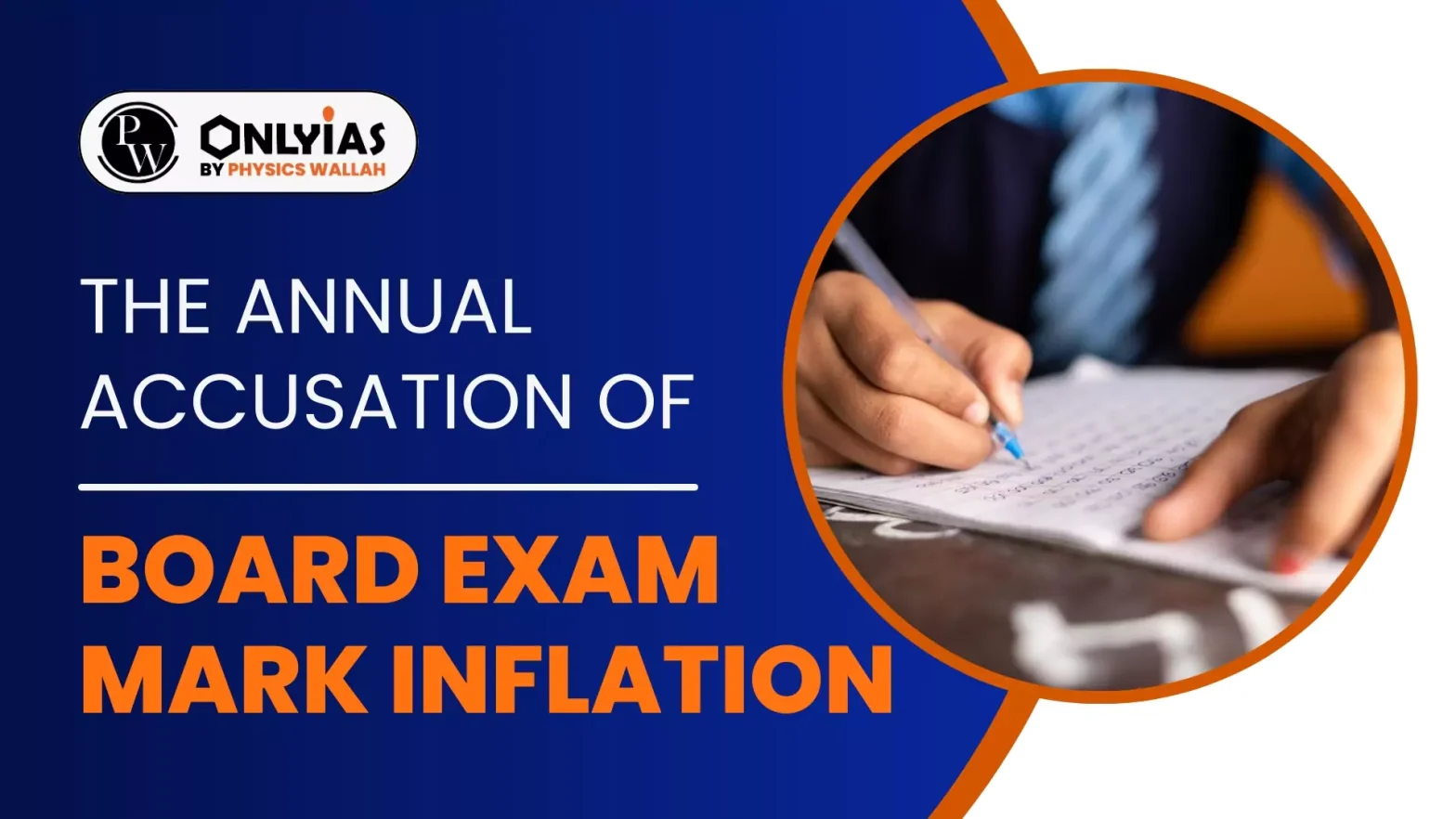Mark inflation and compression in Indian school board examinations have raised serious concerns. These issues undermine academic reliability and affect students’ preparedness for higher education and employment. There is a growing call for increased transparency and accountability in the examination process to restore credibility.
Key issues – Mark Inflation and Compression
- Mark Inflation: This occurs when students receive more marks than their true performance merits. For instance, a student who should score 60% marks might receive a score of 80%.
- Mark Compression: This phenomenon involves a clustering of high marks, where most students score in the higher range, indicating that marks are not evenly distributed but are somewhat skewed towards the upper end.
- Reason for Mark Inflation: Political Motives: Some boards may inflate marks to appear as though they are delivering better educational outcomes.
Enroll now for UPSC Online Course
How do we identify mark inflation?
- In India, with its varied state education boards such as those in Haryana, Uttar Pradesh, Punjab, CBSE, and ICSE, the issue of mark inflation is evident.
- In 2023, the pass percentages were 85% for class 10 and 82% for class 12. Additionally, about 61% of class 10 students and 56% of class 12 students scored over 60%.
- These high pass rates and elevated scores suggest mark inflation.
- The phenomenon of mark compression, where a large number of students achieve high marks, further highlights this issue, pointing to inflated grading practices across different boards.
|
Impact on Students and the Education System
Mark inflation and compression significantly impact both students and the education system in the following ways:
- Competitive Disadvantages: High pass percentages and clustering of high marks create tough competition for college admissions and job placements.
- Reliance on Entrance Exams: The trend towards entrance examinations for higher education and employment has intensified because school marks are often seen as unreliable due to inflated scores. Students have to rely on special coachings to excel in such exams.
- In some countries, a strong school education system allows job offers based directly on school marks. In contrast, in India, the high number of students achieving top marks limits this practice.
- Diverse Board Standards: Various state boards use different grading standards, leading to inconsistencies. For example, in 2023, Assam, Chhattisgarh, and Bihar had fewer students scoring above 60% compared to the national average. This does not reflect lower student intelligence but may be due to stricter grading practices.
- Impact on the Education System: Such practices undermine the overall credibility of academic qualifications and education system.
Recommendations for Improvement
- Standardised Assessments: Implement uniform evaluation criteria and question formats across different boards to ensure consistency in grading.
- Enhance Transparency: While secrecy in the checking process is necessary, greater transparency regarding evaluation methods and criteria should be provided to students.
- Implement Technology: Introduce partial automation in the evaluation process by utilising online assessment tools. This approach can enhance standardisation and ensure a more consistent evaluation of student performance. Combining automated assessments with human review can further minimise inaccuracies.
- Ensure Accountability: Establish clear accountability measures to oversee the examination process and address any discrepancies or biases in marking.
Check Out UPSC CSE Books From PW Store
Conclusion
Addressing mark inflation and compression will significantly enhance the credibility of the education system. By implementing standardised assessments, improving transparency, leveraging technology, and ensuring accountability, the integrity of school marks will be preserved. This will establish equitable standards across boards, increase trust in the education system, and improve opportunities for students in both admissions and employment.
![]() 24 Aug 2024
24 Aug 2024
